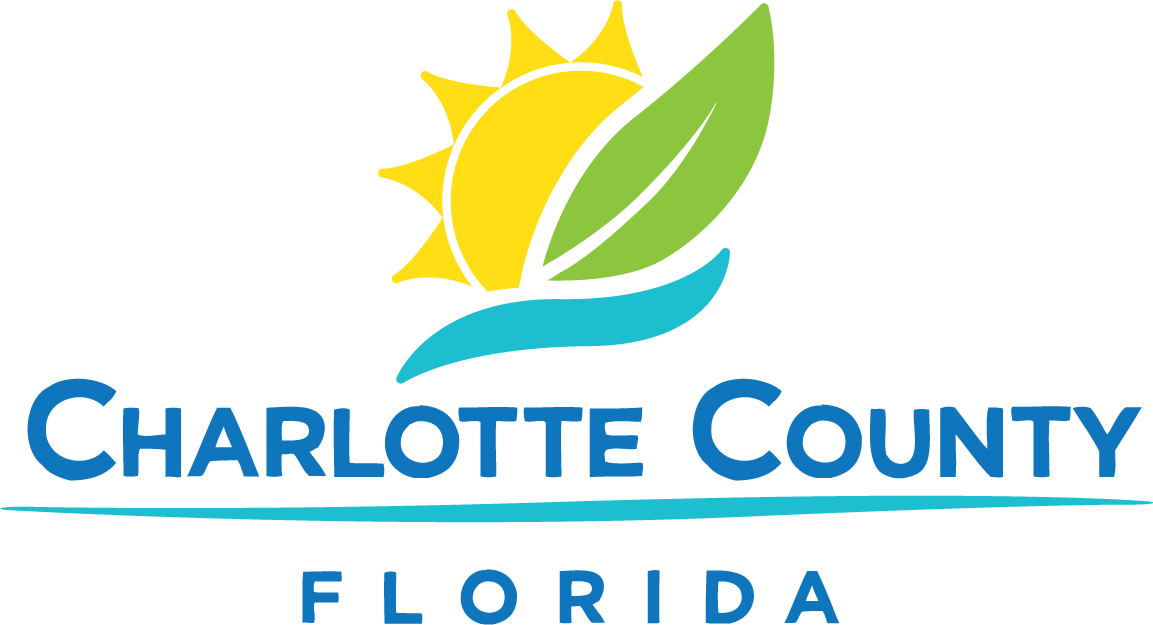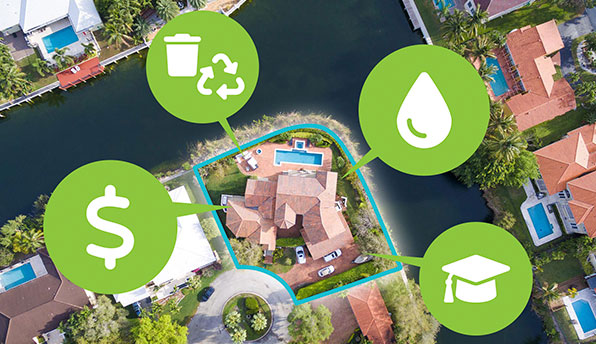Permits and Requirements Guide
Work listed below that does not require a permit may still require a licensed contractor. Property owners may perform work themselves, but hiring a licensed contractor is required for work labeled “contractor required.”
Working with Contractors Guide
Understanding Permits
The Florida Building Code, section 105.1, requires a permit as follows:
Any owner or owner's authorized agent who intends to construct, enlarge, alter, repair, move, demolish, or change the occupancy of a building or structure, or to erect, install, enlarge, alter, repair, remove, convert or replace any impact resistant coverings, electrical, gas, mechanical or plumbing system, the installation of which is regulated by this code, or to cause any such work to be performed, shall first make application to the Building Official and obtain the required permit.
FEMA 50% Rule
Also known as Substantial Improvement/Substantial Damage. The 50% Rule is a requirement mandated in Charlotte County’s Floodplain Management Ordinance. The rule applies to any building or structure located in a FEMA-designated high-risk flood zone that is undergoing improvements or repairs and does not meet current elevation code requirements. If the cost of the improvement or repair more than 50 percent of the value of the building or structure, it is required to be brought up to Florida Building Code standards including elevation requirements. This requirement affects when a permit is required and when it is not. If the cost of the improvement or repair exceeds 50 percent of the building or structure’s value, it must be updated to meet Florida Building Code standards, including elevation requirements. This requirement determines whether a permit is necessary.
Find Your Flood Zone Learn about the FEMA 50% Rule
Residential Work
Use the table below to quickly check whether a permit is required for residential projects.
| Permit Required | Permit Not Required |
|---|---|
|
Drywall repair is required within a designated flood zone, covering an area exceeding 100 square feet. This interior remodel will encompass the installation of all interior elements, including cabinets, flooring, doors, trim, and finishes. Additionally, it will involve any necessary plumbing, mechanical, or electrical work. For more details, please refer to the FEMA 50% Rule guidelines.
|
Drywall repair if located outside of a designated flood zone. For repairs within a flood zone, only those covering an area of less than 100 square feet.
|
|
Cabinet installation or removal is permitted if located outside of a designated flood zone and does not involve a reconfiguration of the space
|
|
|
Installation or removal of floor coverings (including carpet, tile, or laminate) located outside of a designated flood zone
|
|
|
Interior doors and trim (including baseboards) located outside of a designated flood zone
|
|
|
Replacement of electrical fixtures or devices (like-for-like) outside of a designated flood zone (contractor required)
|
|
|
Replacement of plumbing fixtures (like-for-like) outside of a designated flood zone
(contractor required) |
|
|
Painting outside of a designated flood zone and not associated with any interior remodel or repair within a flood zone
|
|
|
Floor sheathing repairs exceeding 100 sq. ft. or involving structural floor joist repairs
|
Floor sheathing repairs under 100 sq. ft., not involving structural floor joist repairs
|
|
Siding installation under 100 sq. ft.
(contractor required) |
|
|
Soffit replacement under 25 sq. ft.
(contractor required) |
|
|
Stucco installation under 25 sq. ft.
(contractor required) |
|
|
Roof repairs exceeding 100 sq. ft. (or "1 square") or involving structural repairs to trusses or rafters
|
Roof repairs under 100 square feet (or "1 square") that do not involve structural repairs to trusses or rafters
|
|
Replacement of floor tiles in a tub or shower area, including the replacement of the shower pan
|
Replacement of floor tiles in a tub or shower area, excluding the replacement of the shower pan
|
|
Retaining walls used for landscaping that are 48 inches or taller and solely support soil must include engineered plans
|
Re-screening
|
|
Retaining walls used solely for soil containment and measuring less than 48 inches in height require a Zoning Review only.
|
Screen door replacement
|
|
Landscaping sprinkler system
|
Pergolas are allowed if they are single, free-standing structures (not attached to any other building), with maximum dimensions of 12 ft. by 12 ft. They must be constructed without footings, roofing, or sheathing, and contain no electrical or plumbing installations. All pergolas must comply with the requirements of the Charlotte County Code of Ordinances.
|
|
Plastic or rubber manufactured type sheds (68 sq. ft. or less) in area do not require a permit. However, they must comply with zoning setbacks, and must be moved and secured if there is the threat of a tropical storm.
|
|
|
Door panel only replacement (no frame)
|
|
|
Low-voltage installations to include security, cable TV, and phone (contractor required)
|
|
|
Glass only replacement in windows and doors
|
|
|
Screening of existing covered patios, balconies, carports, lanais, or porches with standard insect screening is permitted, provided it does not alter or expand the building's footprint
|
|
|
Solar-powered attic exhaust fans
(contractor required) |
|
|
Pasture/wire mesh fencing on acreage for agricultural purposes only
|
|
|
Awnings (wall-mounted only) on single family or duplex dwellings (*a permit is required on multifamily dwellings and commercial buildings)
(contractor required) |
|
|
A permit is not required for flagpoles; however, the following requirements must be met:
|
A handyman is not a licensed contractor and is limited in the type of work they can perform.
Download the Handyman Business Tax Receipt (BTR) Form
Commercial Work
A permit is not required for the following:
- Low-voltage burglar, security, cable TV, and phone installations (contractor required)
- Painting
- Pressure washing
Permits shall not be required for the following mechanical work:
- Any portable heating appliance;
- Any portable ventilation equipment;
- Any portable cooling unit;
- Any portable evaporative cooler;
- Replacement of any part which does not alter its approval or make it unsafe.
For additional assistance in determining whether a permit is required or not, email BuildingConstruction@CharlotteCountyFL.gov or call 941.743.1201.






